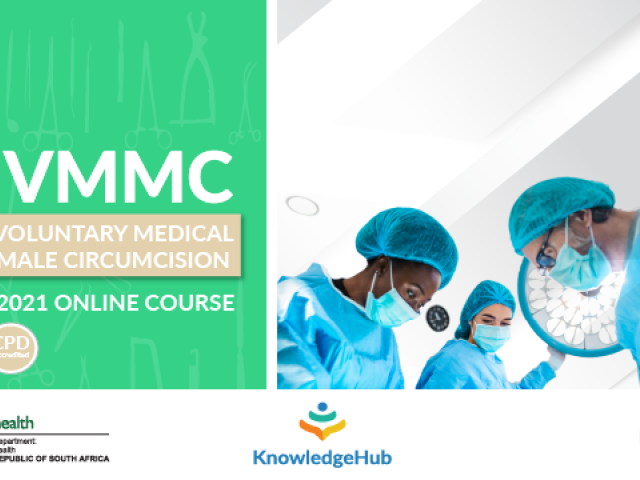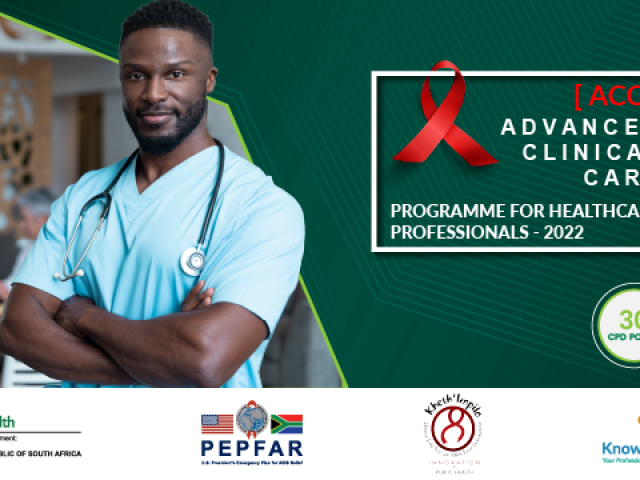


This course covers the theoretical overview of the circumcision programme, which is essentially the backbone around which the surgical intervention is focused. The course includes a detailed review of HIV prevention in Africa, the anatomy and physiology required to perform a safe surgical circumcision and a review of the procedure using the dorsal slit method, a World Health Organization (WHO) approved circumcision method.
The VMMC training has the 10 modules as follows:
Course objectives:

The ACC Programme for healthcare professionals was designed to strengthen the South African Government’s ability in addressing challenges of sustainable clinical capacity within the National Department of Health in the context of a rapidly maturing HIV and TB epidemic. The curriculum will focus on providing healthcare professionals with the core knowledge and skills required to diagnose and manage unstable HIV patients with commonly observed opportunistic infections and other co-morbidities, in addition to those failing antiretroviral treatment (ART).
The ACC HIV management course is essential to improve the clinician’s capacity to deliver quality care to complex care patients. Capacitating clinicians with advanced clinical care skills and knowledge is essential to reduce morbidity and mortality rates amongst patients with complex and advanced HIV disease.
It is recommended that all healthcare workers registering for this course must have completed the NIMART or Basic HIV training and preferably be engaging with HIV positive patients. To register for Basic HIV, please click here.
The ACC curriculum consists of 25 sub-modules. The overall goal of this training is enhanced clinical competency to manage complex patients with HIV and HIV/TB in all population groups (adults, children, adolescents, and pregnant women). The training curriculum will provide healthcare professionals with an approach towards the assessment, investigation, and management of patients with advanced HIV disease and common infections, complications, and comorbidities in each organ system.
Module 1 – Core topics
Module 2 – Management of the HIV-positive person with advanced disease
Module 3 – Management of treatment failure and HIV drug resistance
Module 4 – Special challenges with antiretroviral therapy
